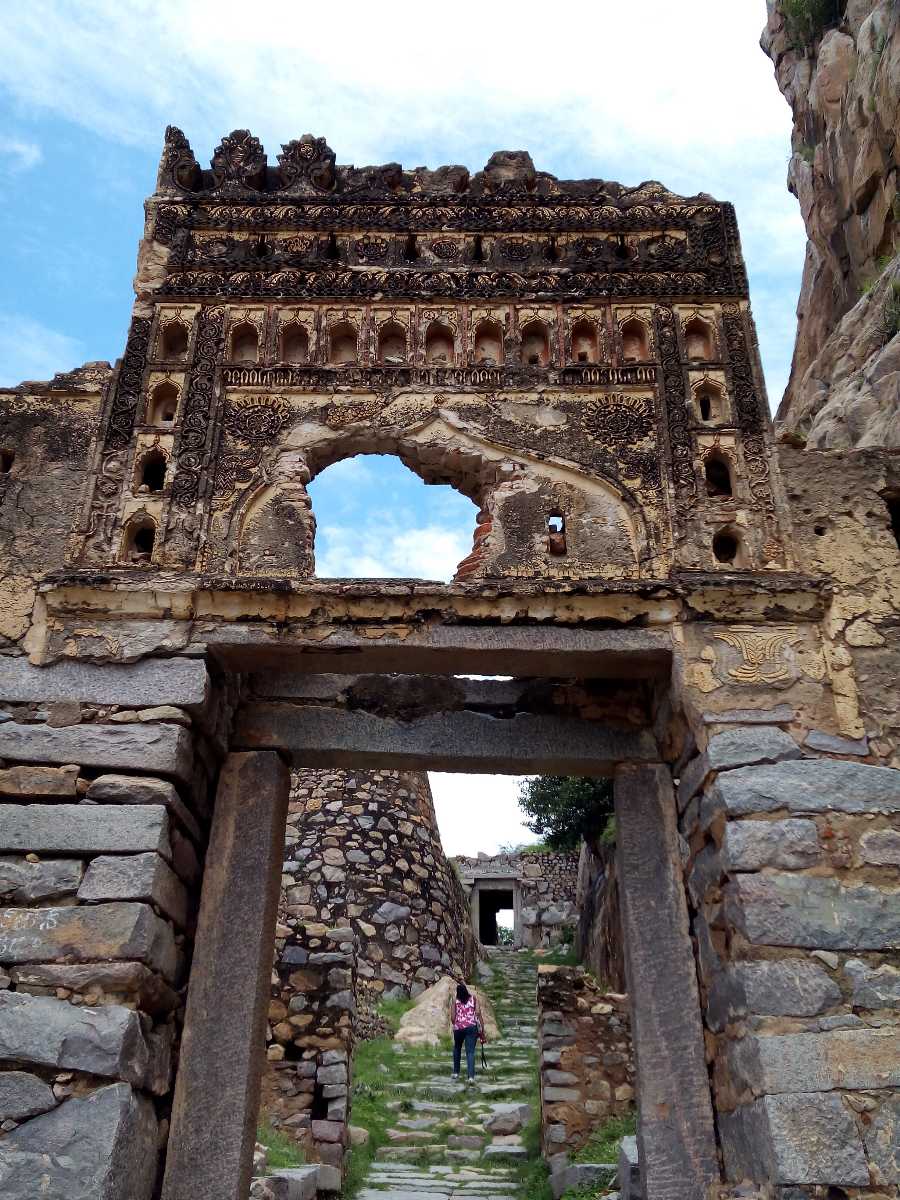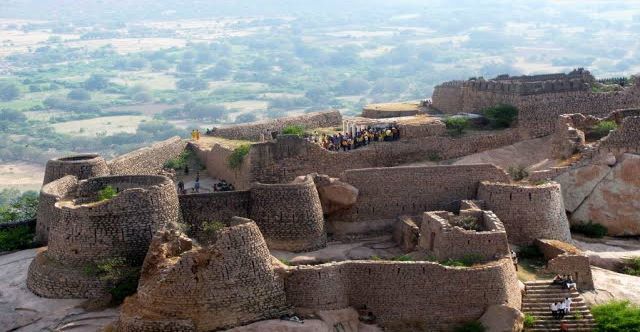
Gooty Fort is perched on a prominent hilltop, offering commanding views of the surrounding landscape. Its strategic position made it a crucial military stronghold throughout its history, serving as a key defensive site for various ruling dynasties.
Gooty Fort dates back to the 6th century AD, with various additions and modifications over the centuries. It was initially built by the Rashtrakuta dynasty and later expanded by the Vijayanagara Empire and other regional rulers.
The fort served as a strategic military base due to its elevated position on a hilltop, overseeing the surrounding region. It has witnessed several historical events and has been controlled by different rulers over time.

The fort is situated on a hill and is known for its impressive fortifications and military architecture. It features walls, bastions, and gateways that were designed for defense.
Main Entrance: The primary entrance is a large archway, which leads to the fort’s inner areas. Walls and Bastions: The fort is surrounded by thick, fortified walls with bastions at various points for defense.

The fort is accessible by road from Anantapur, approximately 60 kilometers away. You can drive or take a local bus or taxi from Anantapur.
There are bus services connecting Gooty with nearby towns and cities. You can also use ride-sharing services for a more convenient option.

Available locally for a nominal fee. It is advisable to hire a guide to gain deeper insights into the temple’s history and architecture.
The fort is typically open from early morning to late afternoon. It’s best to visit during daylight hours for safety and to fully appreciate the views and architecture.
There may be a nominal fee for entry, but it’s advisable to check for the latest information or any changes in the fee structure before your visit.
Wear modest clothing that covers shoulders and knees as a sign of respect.
Check with temple authorities about photography rules, as some areas might have restrictions.
Be respectful of local customs and practices. Silence and peacefulness are encouraged inside the temple premises.